12 Military Sci-Fi Shows You Won’t Be Able to Stop Watching
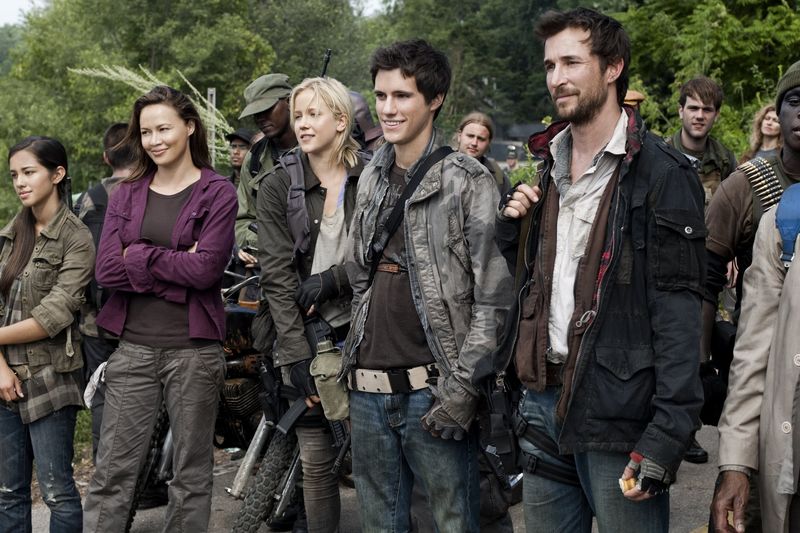
Space battles, interstellar warfare, and military strategy combine with futuristic technology in these addictive sci-fi shows. From gritty space marines to complex political conflicts spanning galaxies, these series offer both heart-pounding action and thought-provoking themes. Whether you’re a longtime sci-fi fan or new to the genre, these military-focused space adventures will keep you glued to your screen.
1. Battlestar Galactica (2004–2009)
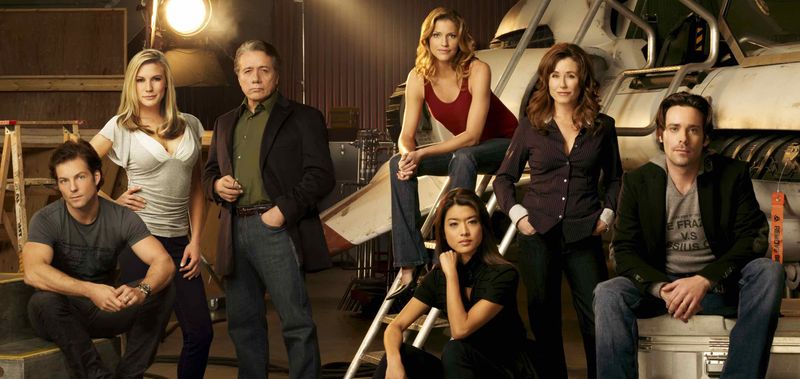
Humanity faces extinction after Cylons, robots of our own creation, launch a devastating attack. Only the aging warship Battlestar Galactica and a ragtag fleet of civilian vessels escape, carrying the last 50,000 human survivors.
Commander Adama and President Roslin navigate constant threats while searching for the mythical Earth. Their challenges extend beyond military tactics as they confront food shortages, political upheaval, and the shocking revelation that Cylons now look exactly like humans.
The series masterfully balances edge-of-your-seat space battles with profound questions about what it means to be human. Its gritty realism and complex characters elevate it beyond typical sci-fi fare.
2. The Expanse (2015–2022)
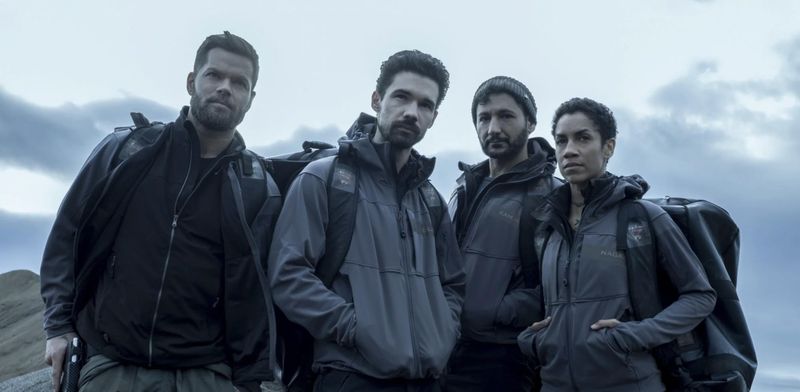
Set hundreds of years in the future, humans have colonized the solar system, creating three distinct factions: Earth, Mars, and the Belters. Political tensions simmer constantly between these powers, especially between Earth’s UN forces and Mars’ highly disciplined military.
The series follows the crew of the Rocinante as they become entangled in a system-wide conspiracy. Space combat feels frighteningly realistic with no sound in vacuum, realistic physics, and devastating rail guns that punch through ship hulls like paper.
What makes The Expanse exceptional is its attention to scientific detail while delivering nail-biting military standoffs and power struggles that feel eerily relevant to today’s geopolitics.
3. Stargate SG-1 (1997–2007)
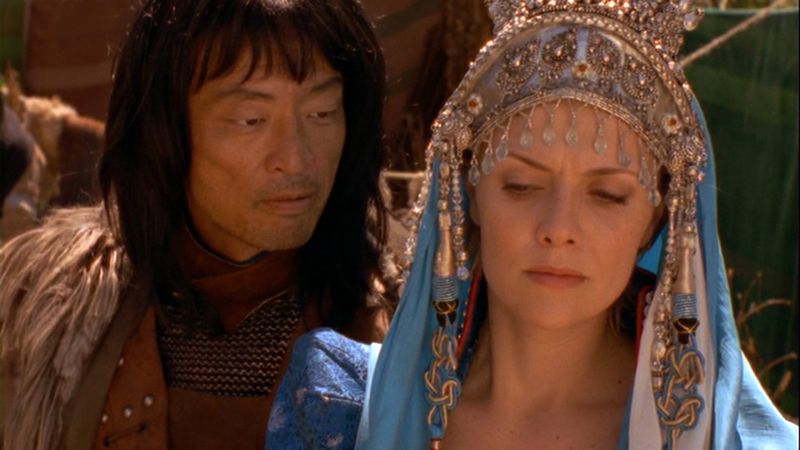
Colonel Jack O’Neill leads a specialized Air Force team through an ancient portal called the Stargate. Each episode whisks viewers to new alien worlds where the team battles parasitic Goa’uld who pose as gods and enslave human populations throughout the galaxy.
SG-1 stands apart with its perfect blend of military procedures, archaeological mysteries, and witty banter. The show gradually builds an intricate universe of alien alliances, advanced technologies, and interstellar politics over its impressive ten-season run.
Unlike many sci-fi series, Stargate SG-1 maintains a hopeful outlook while showcasing realistic military protocols. The camaraderie between team members creates an emotional anchor amidst the fantastical adventures.
4. Firefly (2002)

Captain Malcolm Reynolds, a former rebel soldier, commands the Firefly-class ship Serenity with his loyal crew of misfits. They survive through smuggling jobs while dodging the oppressive Alliance military that controls the core planets.
The genius of Firefly lies in its unique space-western fusion. Frontier planets feature six-shooters alongside spaceships, creating a lived-in universe where people struggle with everyday problems despite advanced technology.
The crew’s military tactics often rely more on cunning than firepower. Despite being canceled after just 14 episodes, Firefly’s brilliant characters, quotable dialogue, and fascinating universe inspired passionate fan devotion. The show’s exploration of freedom versus security remains hauntingly relevant.
5. Farscape (1999–2003)
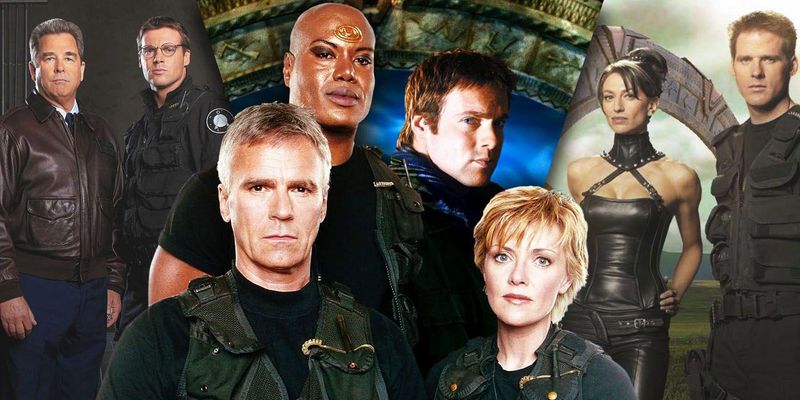
Astronaut John Crichton accidentally travels through a wormhole and ends up aboard Moya, a living ship filled with escaped prisoners from various alien species. The militaristic Peacekeepers hunt them relentlessly across the galaxy, considering Crichton particularly valuable for the wormhole knowledge in his brain.
Farscape pushes creative boundaries with its Jim Henson creature designs and wildly imaginative alien cultures. Military conflicts play out through space battles, psychological warfare, and diplomatic maneuvering as Crichton becomes increasingly entangled in an interstellar war.
The show’s brilliant mix of humor, romance, and darkness creates an emotional rollercoaster. Few sci-fi series match Farscape’s willingness to embrace the truly alien while maintaining deeply human stories.
6. Babylon 5 (1994–1998)
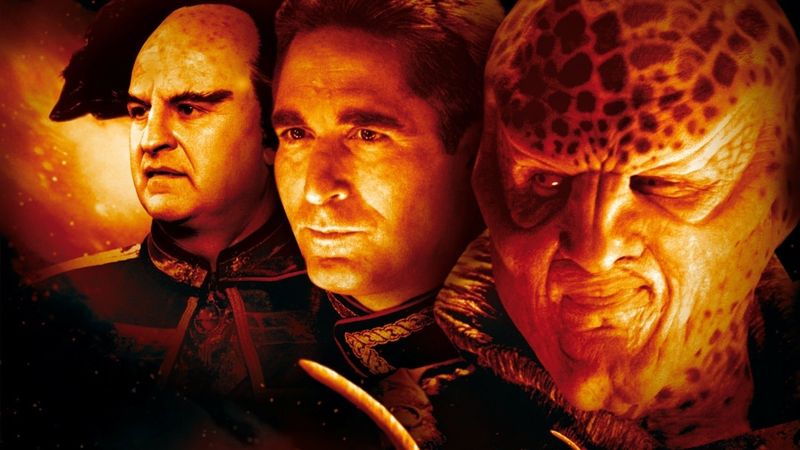
A massive space station serves as neutral territory where humans and alien races conduct diplomacy, commerce, and occasionally espionage. Commander Sinclair and later Captain Sheridan manage this powder keg while uncovering an ancient conflict between godlike beings manipulating galactic events.
Babylon 5 pioneered the fully-planned five-year story arc in television sci-fi. Military aspects shine through realistic chain of command, strategic space battles using Newtonian physics, and exploration of war crimes and military ethics.
The series fearlessly tackles complex themes like fascism, religious extremism, and personal sacrifice. Its revolutionary CGI space battles still impress today, while the political machinations between the major powers remain disturbingly prescient.
7. Falling Skies (2011–2015)
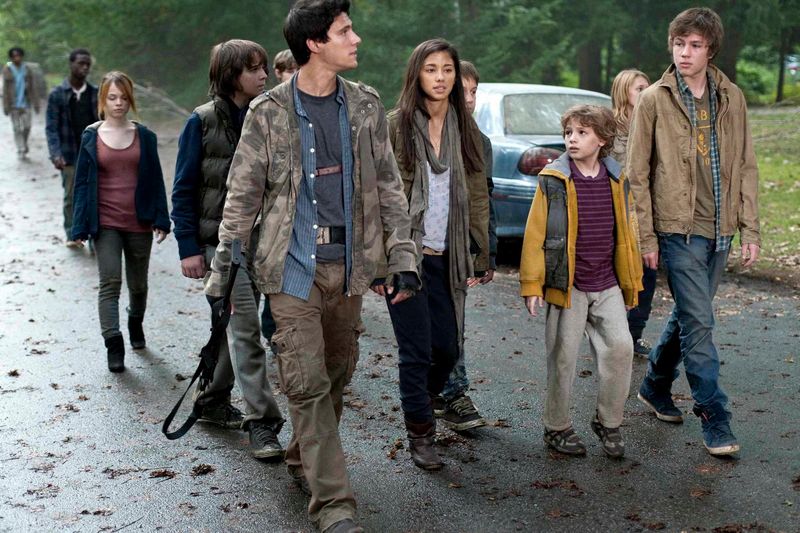
Aliens have conquered Earth, wiping out most of humanity and enslaving teenagers with horrific biological harnesses. History professor Tom Mason joins the resistance as second-in-command of the 2nd Massachusetts Militia Regiment while searching for his captured son.
The series excels at portraying ordinary people transforming into effective guerrilla fighters. Military veterans train civilians in combat tactics while scrounging for weapons and supplies. Each season introduces new alien species with mysterious agendas, keeping the resistance constantly adapting their strategies.
Executive producer Steven Spielberg ensures high production values and emotional depth. The show balances tense combat sequences with quieter moments exploring how people maintain their humanity during brutal occupation.
8. Blake’s 7 (1978–1981)
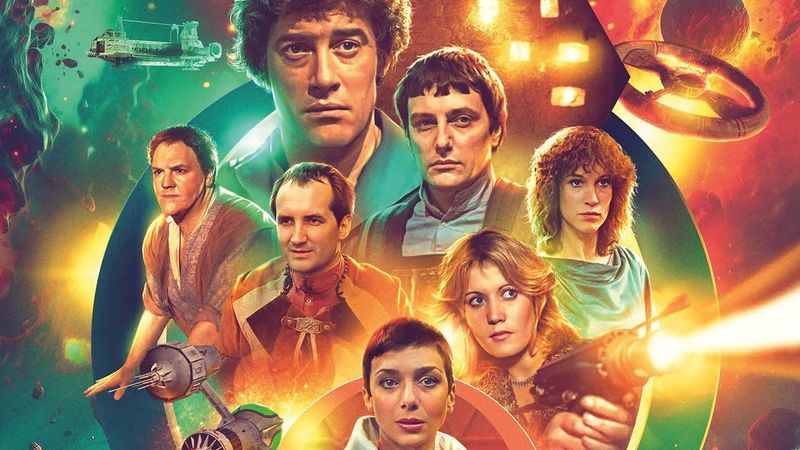
Revolutionary leader Roj Blake escapes a prison transport with a band of criminals, capturing an advanced alien ship they name Liberator. This ragtag crew wages guerrilla warfare against the totalitarian Terran Federation and its ruthless Space Commander Servalan.
Despite low-budget special effects, Blake’s 7 captivates through morally ambiguous characters and cynical storytelling rarely seen in 1970s television. The crew’s military operations involve sabotage, intelligence gathering, and hit-and-run attacks rather than conventional battles.
The series stands out for its unflinching darkness and political complexity. Heroes die, villains sometimes win, and Blake’s increasingly questionable methods raise uncomfortable questions about whether freedom fighters inevitably become terrorists.
9. The 100 (2014–2020)
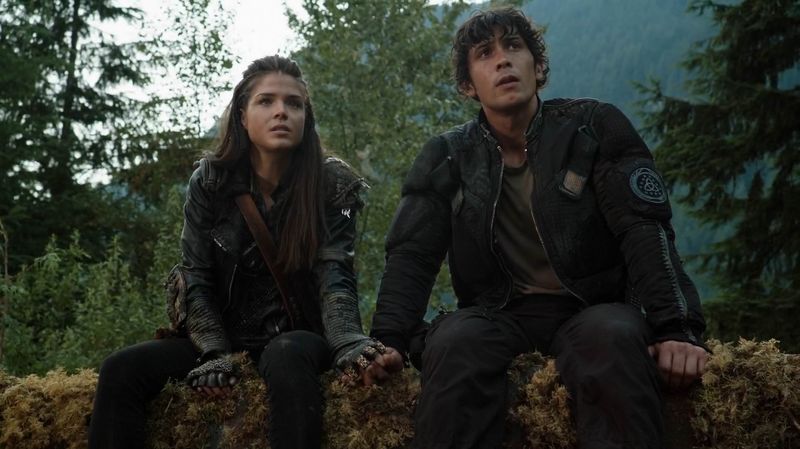
A century after nuclear apocalypse, 100 juvenile delinquents are sent from a failing space station to test Earth’s habitability. They discover radiation-adapted survivors divided into warring tribes with distinct military cultures, from the disciplined Tree Crew to the technologically advanced Mountain Men.
Leadership falls to Clarke Griffin and Bellamy Blake, who must forge their teenagers into a fighting force. The series unflinchingly portrays the brutal reality of survival as characters make increasingly difficult moral choices, sometimes committing atrocities to protect their people.
Military strategy evolves throughout the series from primitive combat to high-tech warfare. Few shows match The 100’s willingness to explore how quickly civilization crumbles when resources become scarce and survival is at stake.
10. Star Trek: Deep Space Nine (1993–1999)
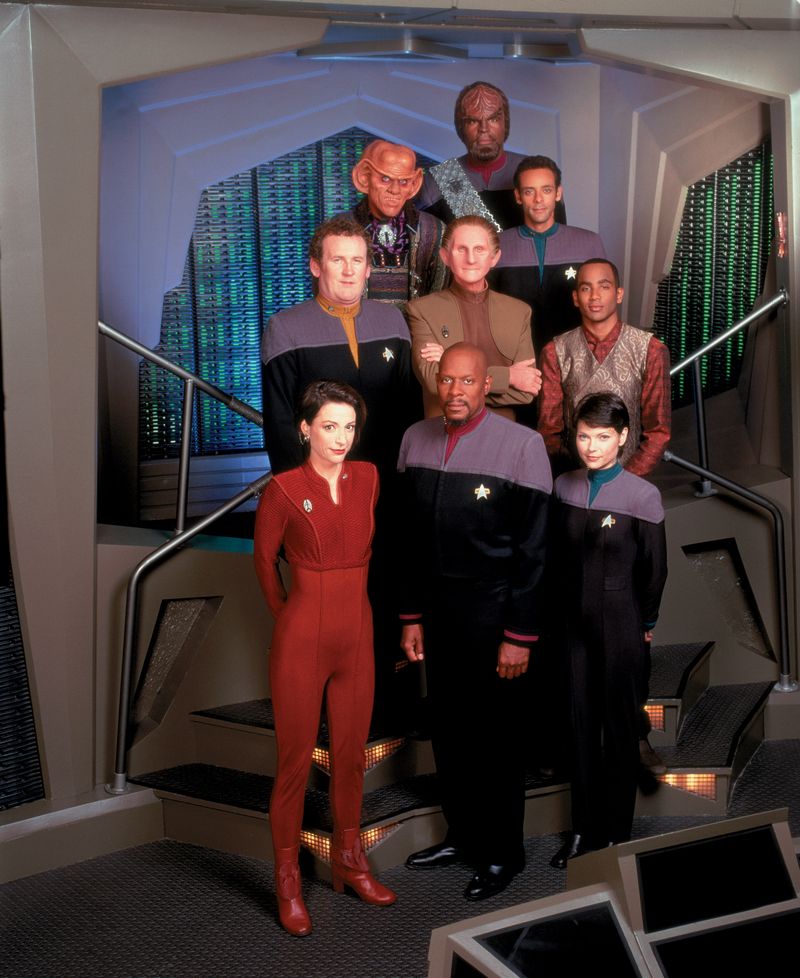
Commander Benjamin Sisko administers a space station positioned near a wormhole connecting to the distant Gamma Quadrant. What begins as a diplomatic assignment transforms into military command when the powerful Dominion threatens the Alpha Quadrant.
DS9 revolutionized Star Trek by embracing serialized storytelling and moral complexity. The Dominion War arc spans multiple seasons, depicting realistic military logistics, intelligence operations, and the psychological toll of prolonged conflict on both soldiers and civilians.
Religious prophecies intertwine with military strategy as Sisko struggles with his dual role as Starfleet officer and Bajoran Emissary. The series courageously explores how Federation ideals fare when tested by existential threats, creating Trek’s most sophisticated examination of war.
11. Space: Above and Beyond (1995–1996)
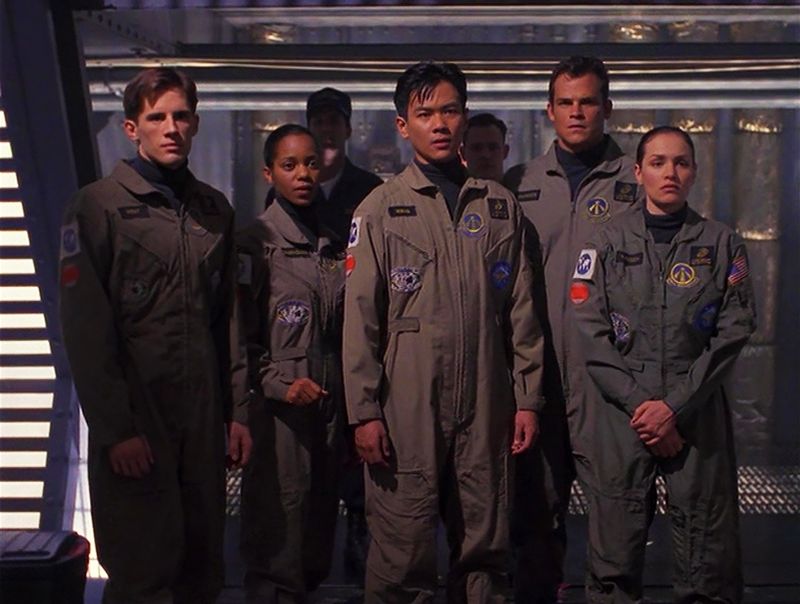
The year is 2063, and humanity’s first interstellar colony is mysteriously destroyed. The 58th Squadron of Marine Corps aviators, nicknamed the “Wild Cards,” are thrust into an unexpected war against an alien species humans call the Chigs.
Raw recruits quickly become battle-hardened veterans through harrowing combat missions. The series authentically portrays military life with attention to hierarchy, training, and the brotherhood formed in combat. Each pilot has distinct motivations, from the artificially-created InVitros fighting prejudice to colonists who lost everything.
Despite lasting only one season, the show delivered exceptional space combat sequences and unforgettable characters. Its unflinching portrayal of war’s cost makes each victory bittersweet as the squadron rarely escapes missions unscathed.
12. The Ark (2024–present)
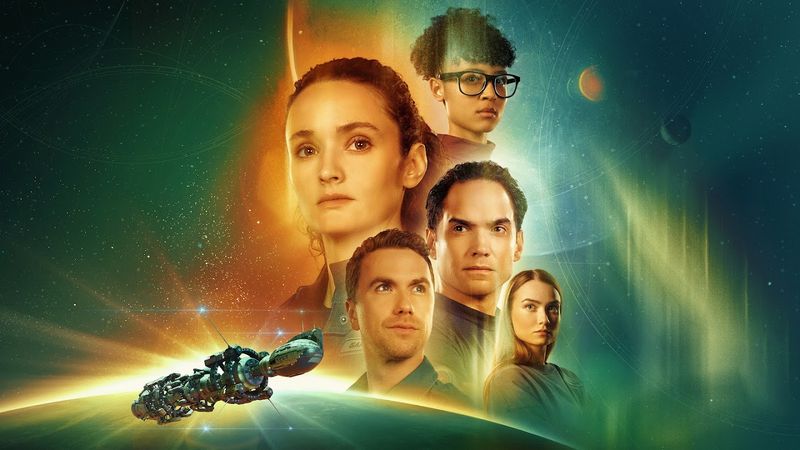
When catastrophic damage strikes the spacecraft Ark One, the remaining crew awakens from suspended animation to discover their leadership dead and ship systems failing. Lt. Sharon Garnet assumes command of the desperate situation as they’re still a year away from reaching their destination planet.
Military hierarchy collides with civilian expertise as the survivors must work together despite dwindling supplies. The show excels at creating nail-biting crises where quick thinking and sacrifice become necessary for collective survival.
Mystery elements keep viewers guessing as sabotage suggests someone aboard has sinister motives. The Ark cleverly uses its confined setting to explore how leadership forms under pressure and how military discipline adapts when traditional chains of command collapse.

Comments
Loading…